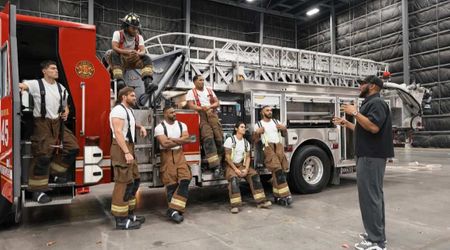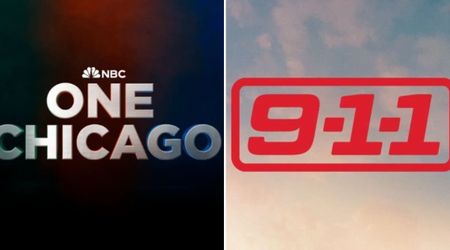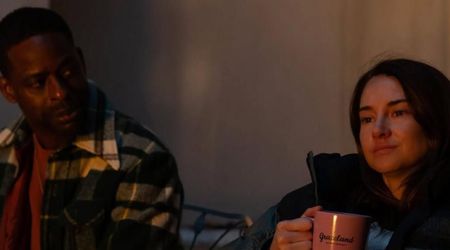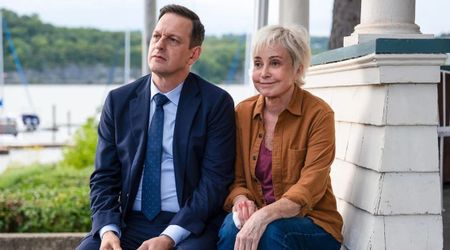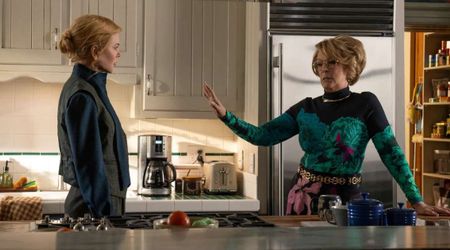‘#SayHerName, Justice for Breonna Taylor': How have the protests resulted in changes in justice and policing?

On March 13, medical worker Breonna Taylor, 26, was shot and killed in her own, by Louisville, Kentucky police. Her death relatively remained in obscurity, barely making local headlines, until it was highlighted by Brittany Packnett Cunningham, a leading activist in the nation's racial-justice movement some two months later. As the George Floyd protests swept the country and beyond in late May, Taylor's name echoed louder in Louisville, and gained wider traction amid the larger demonstrations. In a news special hosted by BET entitled '#SayHerName, Justice for Breonna Taylor', leading figures came together to discuss the system of justice and policing, in the wake of Taylor's death. It is produced by NBA star Kyrie Irving.
Author Dr Brittney Cooper, Congresswoman Ayanna Pressley for Massachusetts's 7th congressional district, Packnett Cunningham, and Black Lives Matter co-founder Alicia Grazia, came together to discuss the policy changes that came with the Breonna Taylor Protests. Five months after she was killed, Taylor's case has gained international attention as among the largest social movements in US history. Her face has been immortalized in a massive mural in Annapolis, and Taylor also became the first person to replace Oprah Winfrey on the cover of O Magazine. But for months after the fateful night of her death, her family along with a small group of local activists struggled to get city leaders and news outlets to focus on her story. It wasn't until Packnett Cunningham's podcast addressed her death, that Taylor's story became public knowledge and the response was almost instantaneous.
According to an article by Brookings, a Black person is killed about every 40 hours by police. They are 3.5 times more likely to killed by police when they are unarmed, as compared to their White counterparts. In 1991, after Rodney King's beating by the LAPD was captured on video on a home camcorder, a series of policing changes were made. Dash cameras in cars were mandated, body-worn cameras were made compulsory along with police bias training. But the one thing that they have fallen short of is holding police officers accountable for their actions. Generally, officers are not charged for killing unarmed Black Americans, and even if they are, they escape conviction a majority of the time.
Packnett Cunningham launched a website memorializing Taylor and even started a petition demanding Louisville police be held accountable. While Floyd and Ahmaud Arbery's killers have been taken into police custody, the perpetrators of Taylor's murder are yet to be apprehended or arrested, which has fueled protesters' anger. The demands for justice have been backed by professional athletes and A-list celebrities, and the protests have put mounting pressure on investigators and protestors to penalize the killers. The federal and local law enforcement responses to the shootings and the protests have come under fire in recent months, with accusations of structural racism in the process of policing which the public believes is only inflaming and encouraging police brutality.
The city of Louisville and police of Louisville is now facing a federal lawsuit from the American Civil Liberties Union, that accuses of using tactics resembling "those used by authoritarian regimes to stifle dissent.” While activists are awaiting legal action, Taylor's death and the subsequent protests have already ushered in policy changes. Louisville Mayor Greg Fisher signed a ban on no-knock warrants, called 'Breonna's Law'. On the night of her death, Taylor and her boyfriend, Kenneth Walker had been in bed and were awakened by the police storming into their home, with a no-knock warrant. Walker, who was in a disheveled state not knowing who the group of people were, brandished his gun and shot one officer in the leg. As a result, fellow officers unleashed more than 20 bullets, eight of which hit Breonna and killed her, per family attorneys.
The Louisville Metro Police Departement fired Detective Brett Hankison in late June, in a public termination letter that said he “blindly fired” 10 shots into Taylor's apartment with “an extreme indifference to the value of human life.” The two other officers who were also involved in the shooting, however, have been placed on administrative reassignment. None of the three officers have been charged or prosecuted for their role in Taylor's murder. Senator Rand Paul, Republican of Kentucky, has proposed a law to Breonna's Law, to veto the no-knock warrants by federal enforcement officers. Once signed, the new Louisville statute will require law enforcement authorities to knock on an entry door and identify themselves as having a search warrant.
The Mayor also announced other changes to ensure “more scrutiny, transparency, and accountability,” so as to improve the public's trust in the keepers of the law and build a stronger community. Officers are now mandated to wear operating body cameras when executing search warrants. They have to activate the device at least five minutes prior to executing the warrant, and leave them on for five minutes afterward, says the measure, and all the recorded data must be retained for up to five years. In addition, the Mayor named a new police chief and the establishment of a civilian review board for police disciplinary matters.
In the aftermath of George Floyd's death, there were increasing calls for the ban of neck restraints by police, and President Donald Trump said in early June that the police must avoid using chokeholds. The state of New York was among the firsts to legally ban the tactic, although the New York Police Department had instated the ban back in 1993. Congresswoman Pressley said that she had introduced a bill entitled the End Qualified Immunity Act for there to be accountability on the part of the law enforcement in such circumstances. She said about qualified immunity that "this statute for law enforcement have allowed them to operate with callous impunity and disregard for countless Black lives, without retribution or consequences." There must be accountability, which won't exist until we bring an end to qualified immunity.
'#SayHerName, Justice For Breonna Taylor' will premiere Saturday, August 22, at 9 pm ET/PT on BET Her. An encore presentation will air on August 29 at 11 pm ET/PT on BET.




